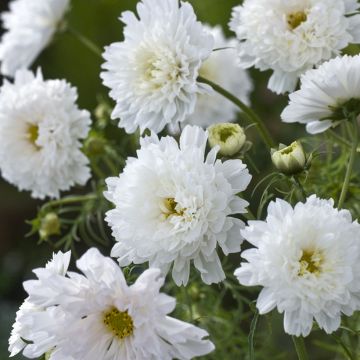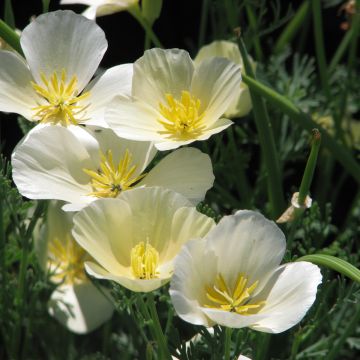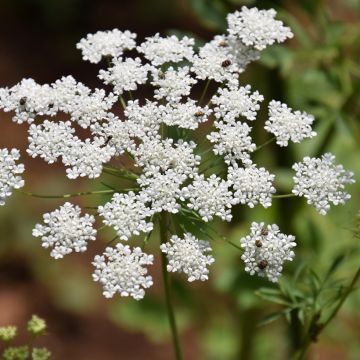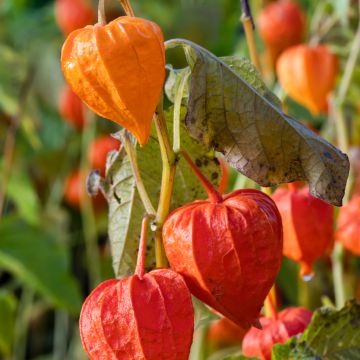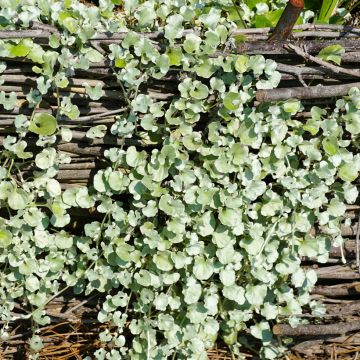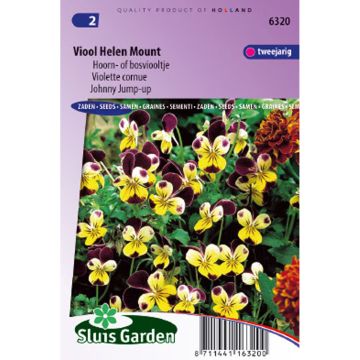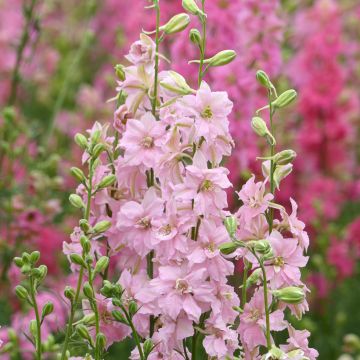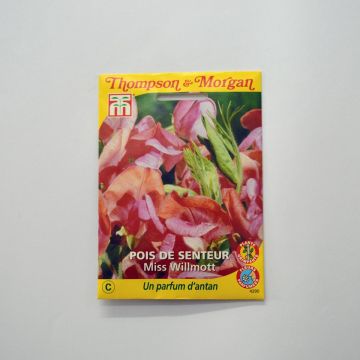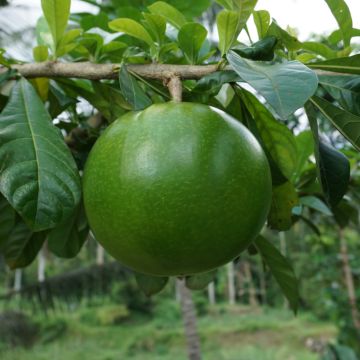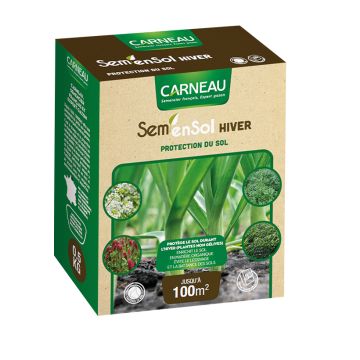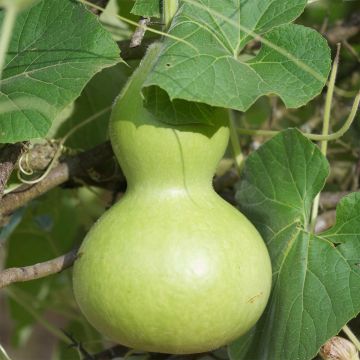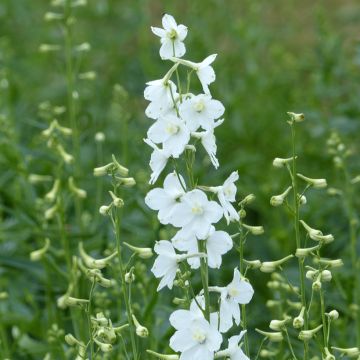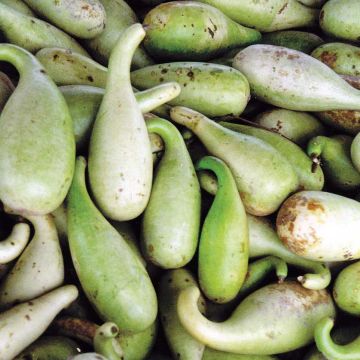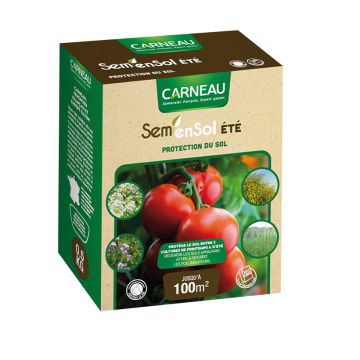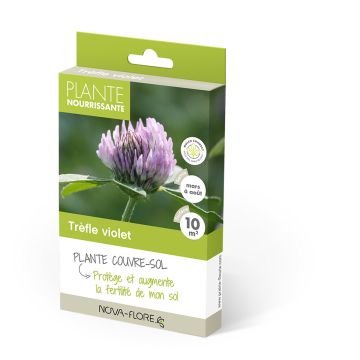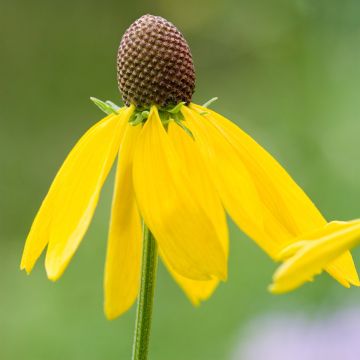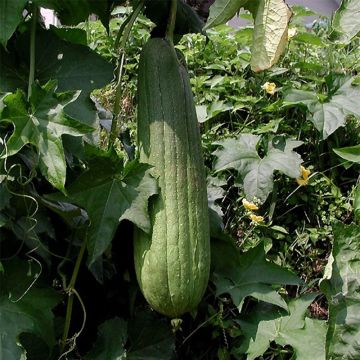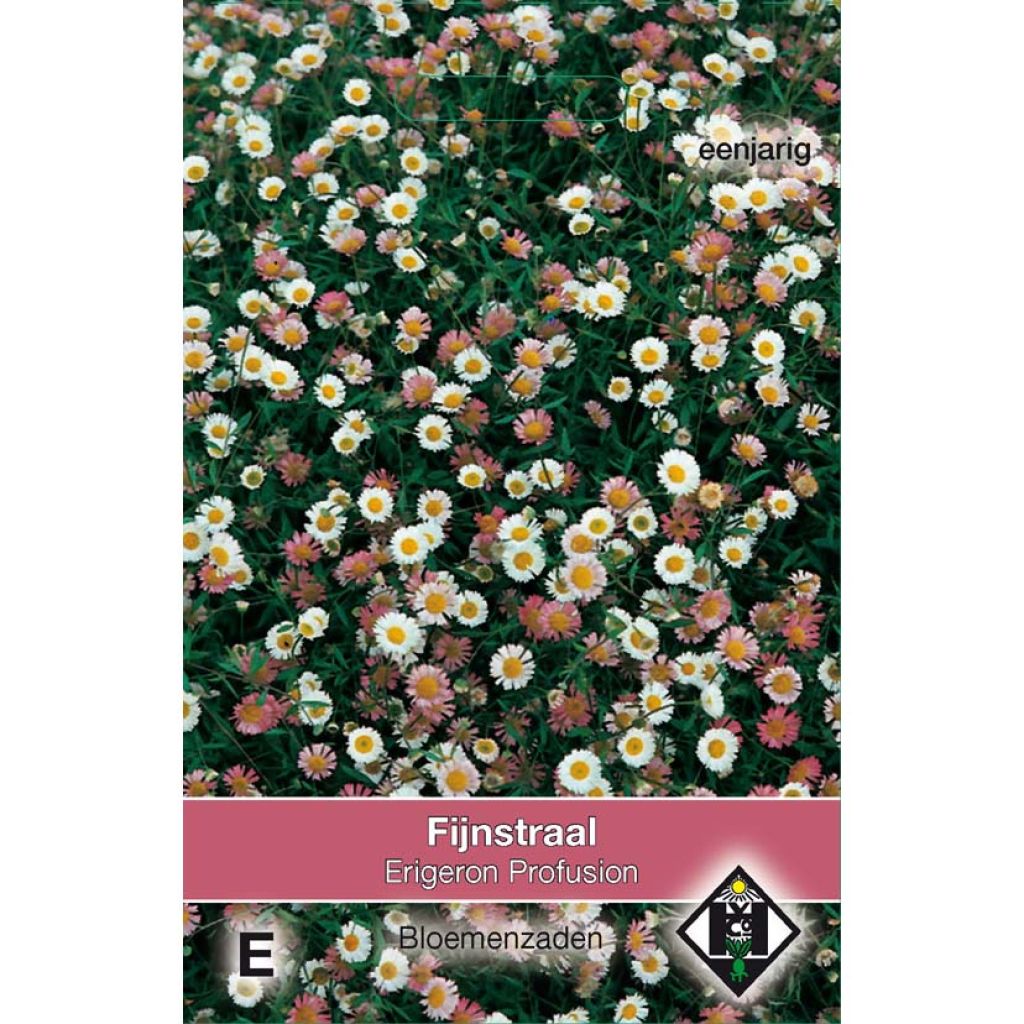

Erigeron karvinskianus Profusion Seeds - Mexican Daisy
Erigeron karvinskianus Profusion Seeds - Mexican Daisy
Erigeron karvinskianus Profusion
Mexican fleabane, Wall Daisy
Why not try an alternative variety in stock?
View all →This plant carries a 6 months recovery warranty
More information
We guarantee the quality of our plants for a full growing cycle, and will replace at our expense any plant that fails to recover under normal climatic and planting conditions.
Seed-only orders are dispatched by sealed envelope. The delivery charge for seed-only orders is €3.90.
Delivery to Corse prohibited: UE law prohibits the import of this plant from mainland France to Corse as part of the fight against Xylella fastidiosa. Please accept our sincere apologies.
More information
Does this plant fit my garden?
Set up your Plantfit profile →
Description
Erigeron karvinskianus 'Profusion' is a small, perennial daisy with a golden yellow central disc and white petals that turn deep pink as they age. It flowers profusely from May until the first frosts. Charming in rock gardens, containers, alongside paths or spilling out of the cracks in stone walls.
Erigeron karvinskianus, commonly known as Mexican daisy or Fleabane, is a herbaceous annual belonging to the Asteraceae family. It is native to the open plains and mountainous regions of North America and Mexico. It forms well-branched, very bushy clumps that grow to a height of about 20 cm. The deciduous, deep green foliage is low-growing. From May to October, an abundance of 1 cm flower heads appear on erect stems. They look like asters but have thinner, shorter petals (technically, ray flowers) that start out white and gradually turn pink to deep purple. One plant can simultaneously bear different-coloured blooms.
Erigeron is not very demanding and adapts to all types of soil, even limestone. It prefers drier soils in the summer rather than waterlogged soils, and is only truly happy when grown in full sun. It is very cold hardy, withstanding temperatures as low as -15°C. It naturalises easily, even in the most unlikely of places, spilling out of tiny gaps or crevices between paving stones and walls. It is perfect to decorate south-facing rock gardens, low retaining walls or a sunny slopes alongside red Valerian, Erigeron 'Dunkelste Aller' or deep blue Aster dumosus 'Augenweide'. Its small blooms are loved by honey-producing insects and butterflies. They are also very popular as a cut flowers in wild bouquets.
Report an error about the product description
Flowering
Foliage
Plant habit
Botanical data
Erigeron
karvinskianus
Profusion
Asteraceae
Mexican fleabane, Wall Daisy
Northern Europe
Other Flower seeds A to Z
Planting and care
Sow from February to May in seed trays or pots, on the surface of good quality sowing mix or compost mixed with a little sand. Cover with a fine layer of compost or vermiculite and keep in a light place at a temperature of 3-15°C. Keep the soil moist but not waterlogged. Germination takes 14 to 30 days. When the seedlings are strong enough to be handled, plant them out in a sunny location in well-drained soil. Make sure to leave 20-25 cm between each plant.
Alternatively, scatter the seeds in around the gardens from May onwards, in between pavin stones or cracks in walls.
Sowing period
Intended location
-
, onOrder confirmed
Reply from on Promesse de fleurs
Flower seeds
Haven't found what you were looking for?
Hardiness is the lowest winter temperature a plant can endure without suffering serious damage or even dying. However, hardiness is affected by location (a sheltered area, such as a patio), protection (winter cover) and soil type (hardiness is improved by well-drained soil).

Photo Sharing Terms & Conditions
In order to encourage gardeners to interact and share their experiences, Promesse de fleurs offers various media enabling content to be uploaded onto its Site - in particular via the ‘Photo sharing’ module.
The User agrees to refrain from:
- Posting any content that is illegal, prejudicial, insulting, racist, inciteful to hatred, revisionist, contrary to public decency, that infringes on privacy or on the privacy rights of third parties, in particular the publicity rights of persons and goods, intellectual property rights, or the right to privacy.
- Submitting content on behalf of a third party;
- Impersonate the identity of a third party and/or publish any personal information about a third party;
In general, the User undertakes to refrain from any unethical behaviour.
All Content (in particular text, comments, files, images, photos, videos, creative works, etc.), which may be subject to property or intellectual property rights, image or other private rights, shall remain the property of the User, subject to the limited rights granted by the terms of the licence granted by Promesse de fleurs as stated below. Users are at liberty to publish or not to publish such Content on the Site, notably via the ‘Photo Sharing’ facility, and accept that this Content shall be made public and freely accessible, notably on the Internet.
Users further acknowledge, undertake to have ,and guarantee that they hold all necessary rights and permissions to publish such material on the Site, in particular with regard to the legislation in force pertaining to any privacy, property, intellectual property, image, or contractual rights, or rights of any other nature. By publishing such Content on the Site, Users acknowledge accepting full liability as publishers of the Content within the meaning of the law, and grant Promesse de fleurs, free of charge, an inclusive, worldwide licence for the said Content for the entire duration of its publication, including all reproduction, representation, up/downloading, displaying, performing, transmission, and storage rights.
Users also grant permission for their name to be linked to the Content and accept that this link may not always be made available.
By engaging in posting material, Users consent to their Content becoming automatically accessible on the Internet, in particular on other sites and/or blogs and/or web pages of the Promesse de fleurs site, including in particular social pages and the Promesse de fleurs catalogue.
Users may secure the removal of entrusted content free of charge by issuing a simple request via our contact form.
The flowering period indicated on our website applies to countries and regions located in USDA zone 8 (France, the United Kingdom, Ireland, the Netherlands, etc.)
It will vary according to where you live:
- In zones 9 to 10 (Italy, Spain, Greece, etc.), flowering will occur about 2 to 4 weeks earlier.
- In zones 6 to 7 (Germany, Poland, Slovenia, and lower mountainous regions), flowering will be delayed by 2 to 3 weeks.
- In zone 5 (Central Europe, Scandinavia), blooming will be delayed by 3 to 5 weeks.
In temperate climates, pruning of spring-flowering shrubs (forsythia, spireas, etc.) should be done just after flowering.
Pruning of summer-flowering shrubs (Indian Lilac, Perovskia, etc.) can be done in winter or spring.
In cold regions as well as with frost-sensitive plants, avoid pruning too early when severe frosts may still occur.
The planting period indicated on our website applies to countries and regions located in USDA zone 8 (France, United Kingdom, Ireland, Netherlands).
It will vary according to where you live:
- In Mediterranean zones (Marseille, Madrid, Milan, etc.), autumn and winter are the best planting periods.
- In continental zones (Strasbourg, Munich, Vienna, etc.), delay planting by 2 to 3 weeks in spring and bring it forward by 2 to 4 weeks in autumn.
- In mountainous regions (the Alps, Pyrenees, Carpathians, etc.), it is best to plant in late spring (May-June) or late summer (August-September).
The harvesting period indicated on our website applies to countries and regions in USDA zone 8 (France, England, Ireland, the Netherlands).
In colder areas (Scandinavia, Poland, Austria...) fruit and vegetable harvests are likely to be delayed by 3-4 weeks.
In warmer areas (Italy, Spain, Greece, etc.), harvesting will probably take place earlier, depending on weather conditions.
The sowing periods indicated on our website apply to countries and regions within USDA Zone 8 (France, UK, Ireland, Netherlands).
In colder areas (Scandinavia, Poland, Austria...), delay any outdoor sowing by 3-4 weeks, or sow under glass.
In warmer climes (Italy, Spain, Greece, etc.), bring outdoor sowing forward by a few weeks.




































